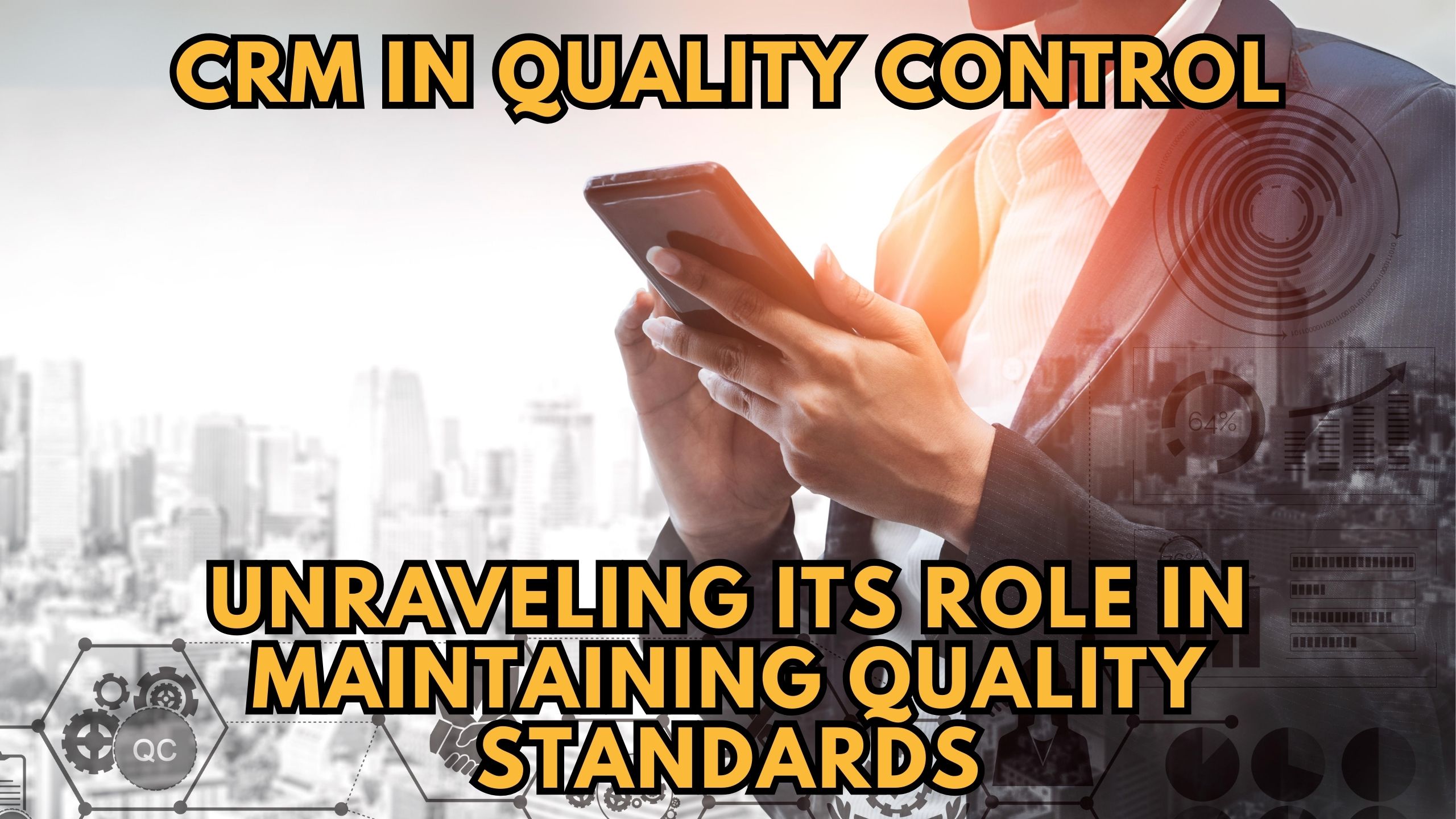CRM in Quality Control: Unraveling Its Role in Maintaining Quality Standards
- Expense Management Software Credit Cards Investing Business Solutions


CRM in Quality Control: Unraveling Its Role in Maintaining Quality Standards
Quality control is an integral aspect of any business committed to delivering products or services that meet or exceed customer expectations. In this digital age, integrating Customer Relationship Management (CRM) systems into quality control processes has emerged as a key strategy to enhance overall efficiency and effectiveness.
1. Enhancing Communication Across Teams
Effective communication lies at the heart of successful quality control. HubSpot CRM stands out as a solution that not only manages customer relationships but also facilitates seamless communication across cross-functional teams. By providing a centralized hub for collaboration, it ensures that quality-related insights and concerns are shared in real-time, fostering a collaborative environment crucial for maintaining high-quality standards.
2. Streamlining Quality Data Management
The complexity of quality control processes often involves managing vast amounts of data. Salesforce, a robust CRM solution, streamlines quality data management by centralizing information related to product specifications, testing results, and customer feedback. This not only ensures the accuracy and accessibility of critical data but also empowers decision-makers to make informed, data-driven choices to uphold stringent quality benchmarks.
3. Customer Feedback Integration
An essential component of maintaining quality standards is understanding customer experiences and incorporating feedback into the quality control loop. Zoho CRM excels in seamlessly integrating customer feedback into quality evaluations. This customer-centric approach ensures that products and services align with customer expectations, contributing to sustained quality excellence and customer satisfaction.
4. Automated Quality Monitoring
Automation has become a cornerstone in modern quality control practices, and Pipedrive takes the lead with its advanced automation capabilities. By automating repetitive tasks and quality monitoring processes, businesses can ensure not only increased efficiency but also a reduction in the risk of human error. This proactive approach to quality control supports consistent adherence to high-quality standards.
5. Scalability for Growing Quality Needs
Quality control requirements evolve as businesses grow and expand. Insightly, as a scalable CRM solution, provides the flexibility needed to support businesses through various growth stages. Whether expanding product lines or entering new markets, businesses can rely on Insightly to adapt and support their evolving quality control needs, ensuring sustained quality excellence.
Conclusion
In conclusion, the integration of CRM into quality control processes represents more than just a technological upgrade; it is a strategic imperative. From enhancing communication and streamlining data management to incorporating customer feedback and leveraging automation, CRM systems play a crucial role in maintaining, elevating, and adapting to ever-evolving quality standards.
Optimize Your Quality Control with Subscribed.fyi
Unlock exclusive deals on essential SaaS tools, including leading CRM solutions, at Subscribed.fyi. Sign up today to access savings on 100+ SaaS tools, totaling over $100,000 per year. Simplify your subscription management, compare tools, and make informed decisions about your SaaS stack. Elevate your quality control processes with Subscribed.fyi!
Relevant Links:








